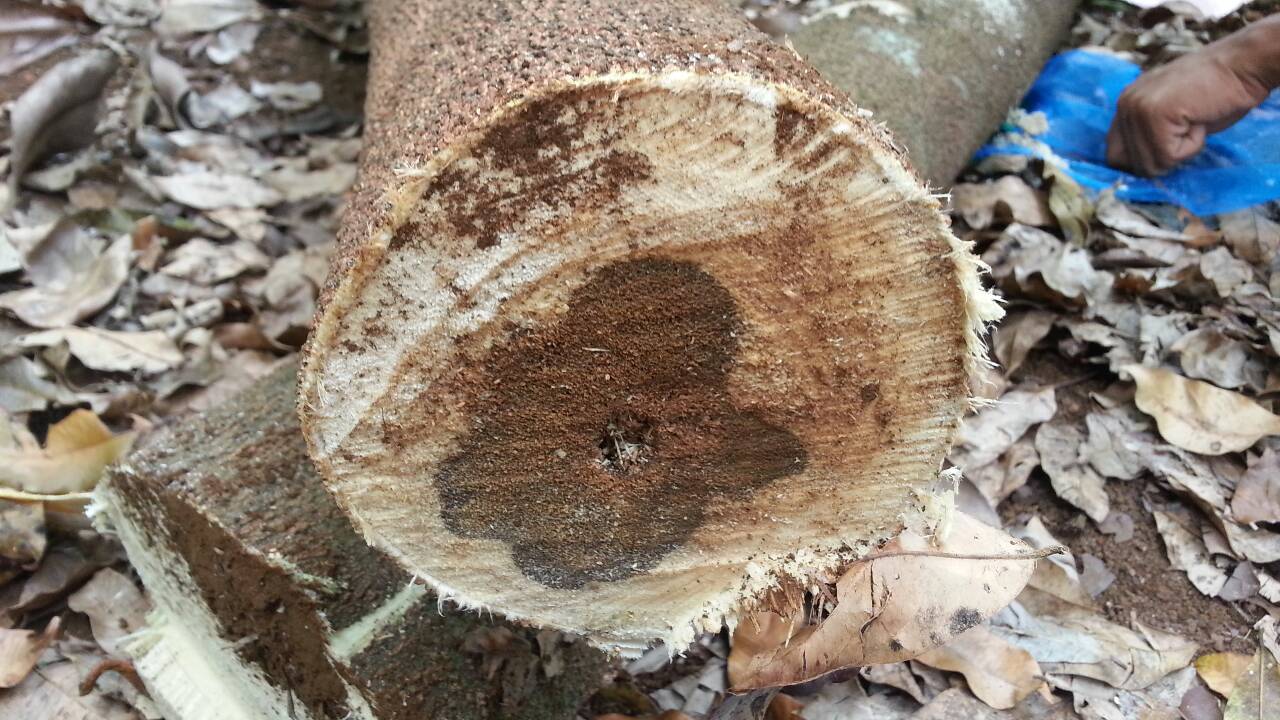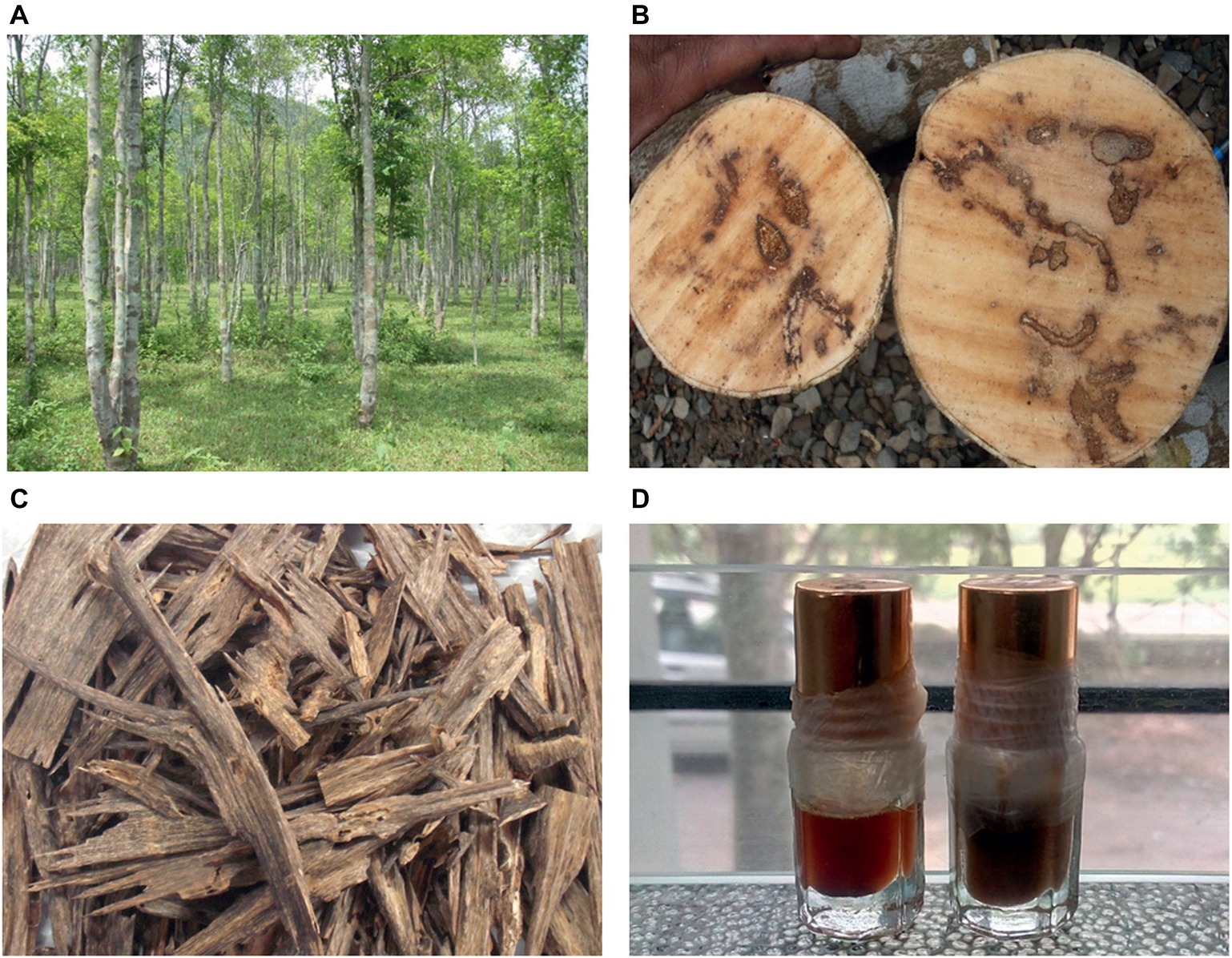Agarwood production in Aquilaria trees is triggered by various factors, which can be categorized into two main types: biotic and abiotic. Understanding these triggers provides valuable insights into stimulating Agarwood production.

Biotic Factors:
- Wounding: Physical injuries such as wind damage, lightning strikes, or animal browsing can trigger Agarwood production. When the tree is wounded, it releases resin as a protective response, eventually leading to Agarwood formation.
- Insect Infestation: Aquilaria trees are susceptible to insect attacks, particularly by certain wood-boring beetles. These insects bore into the wood, creating wounds that stimulate the tree to produce resin as a defense mechanism. The presence of insect infestations significantly contributes to Agarwood formation.
Abiotic Factors:
- Environmental Stress: Agarwood production can be triggered by environmental stresses, such as drought, excessive sunlight, temperature fluctuations, or soil conditions. These stresses induce physiological changes in the tree, activating defense mechanisms and resulting in the production of Agarwood.
- Fungal and Bacterial Infections: Aquilaria trees are also susceptible to fungal and bacterial infections, which can occur naturally in the environment. These microorganisms enter the wounded or stressed tissues of the tree and trigger a response that leads to Agarwood production. Specific strains of fungi and bacteria are believed to play a vital role in the resin formation process.

Agarwood production is a complex phenomenon influenced by the interplay of multiple factors. The triggers mentioned above often act in combination, amplifying the tree’s response and enhancing the formation of Agarwood.
The exact biochemical pathways and mechanisms linking these triggers to Agarwood production are not fully understood. The process involves a series of intricate physiological and biochemical reactions within the tree, resulting in the gradual transformation of resin into Agarwood.
Studying these triggers and causes of Agarwood production is crucial for the sustainable cultivation and conservation of Aquilaria trees. A better understanding of the conditions that stimulate Agarwood formation allows researchers and industry professionals to develop strategies for replicating and optimizing the process, ensuring a stable and reliable supply of Agarwood while minimizing the impact on natural resources.
Further research is needed to explore the specific cues and molecular mechanisms involved in Agarwood production, shedding light on the fascinating interplay between Aquilaria trees, their environment, and the triggers that induce the formation of this highly prized resin.







